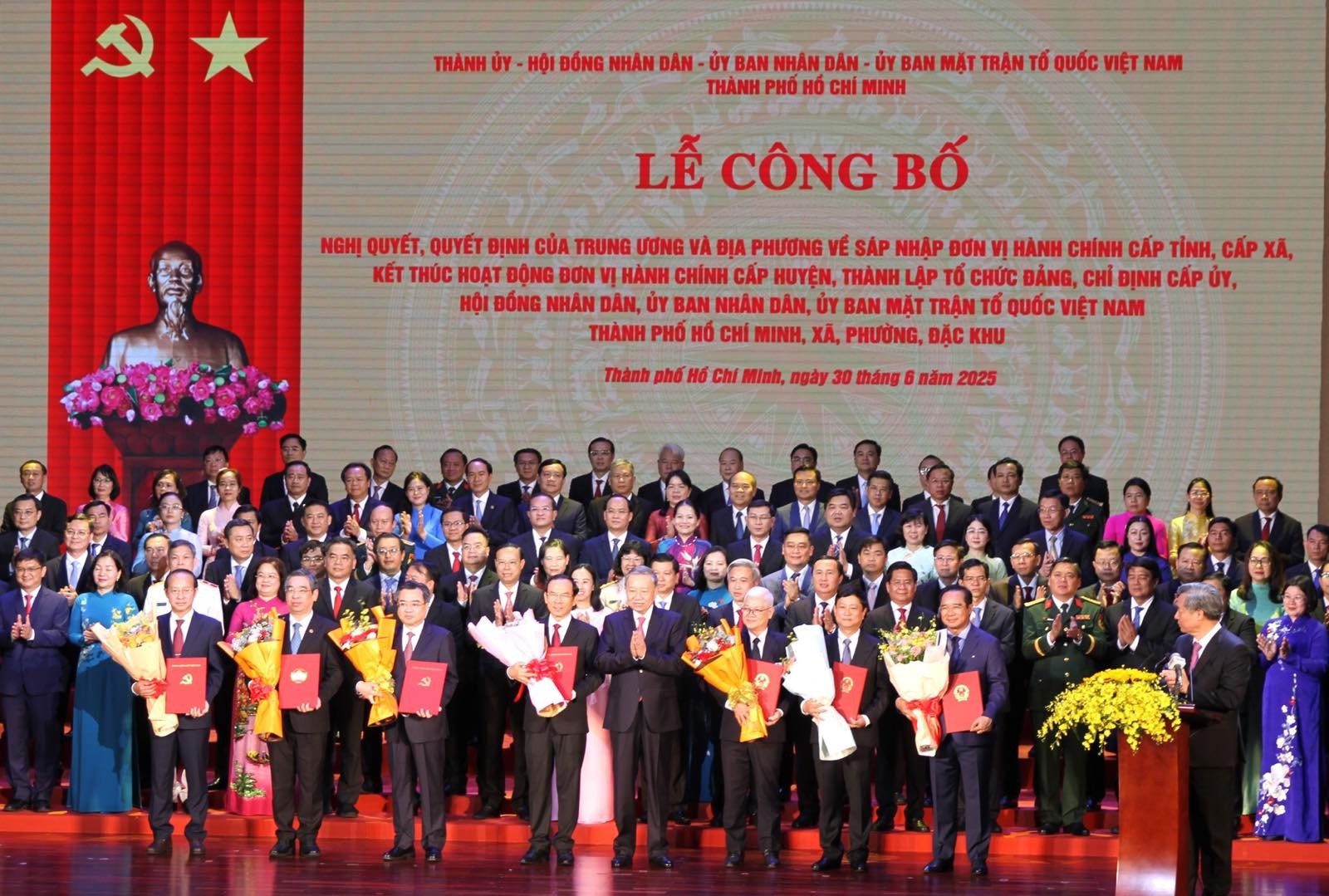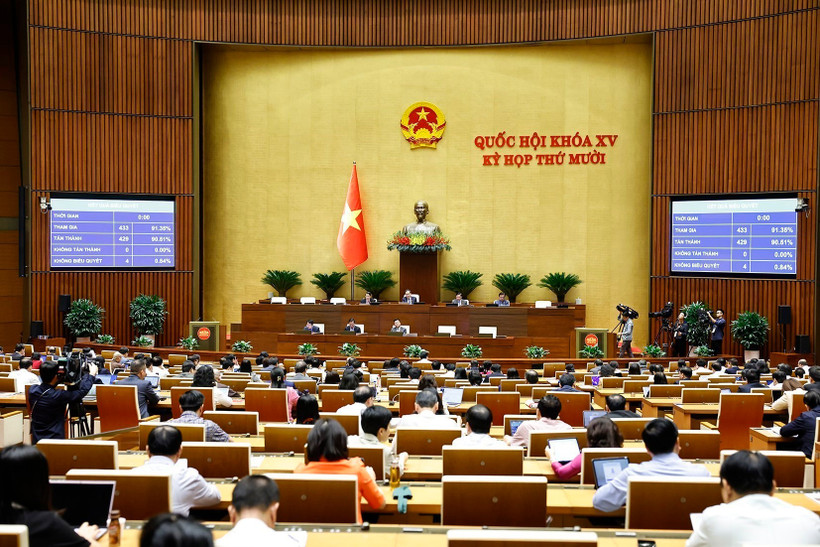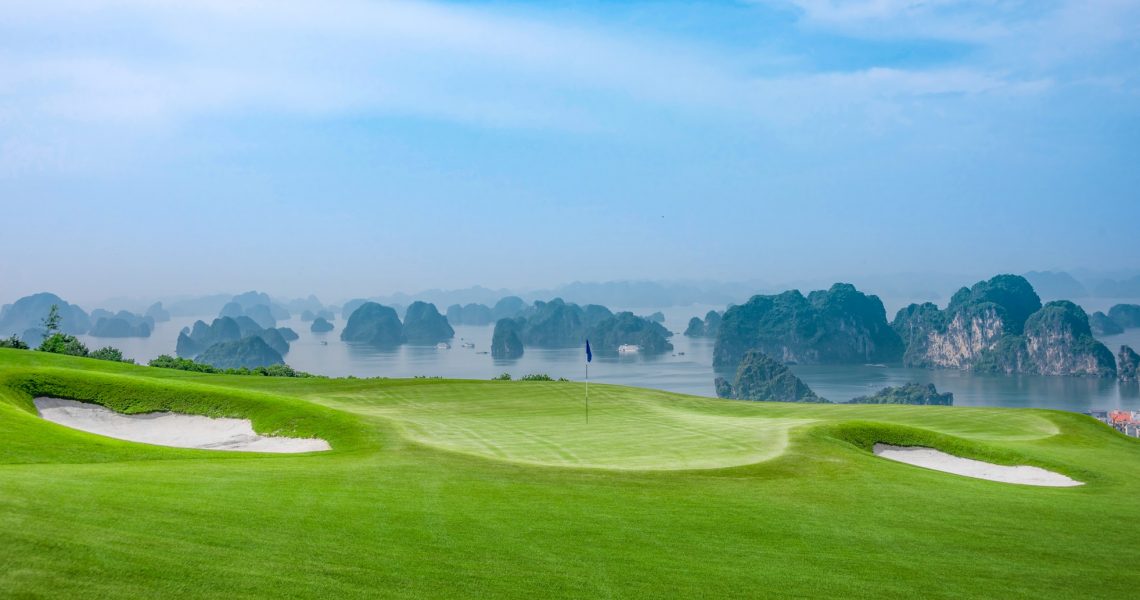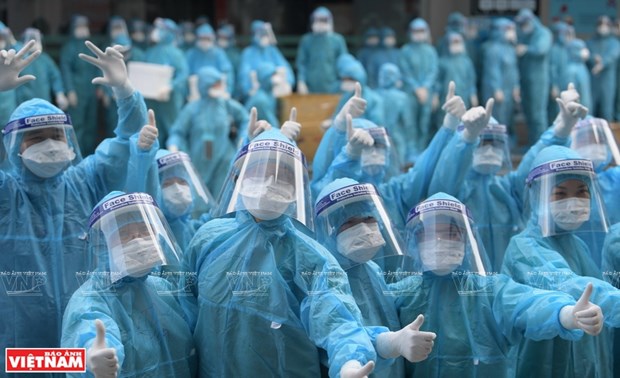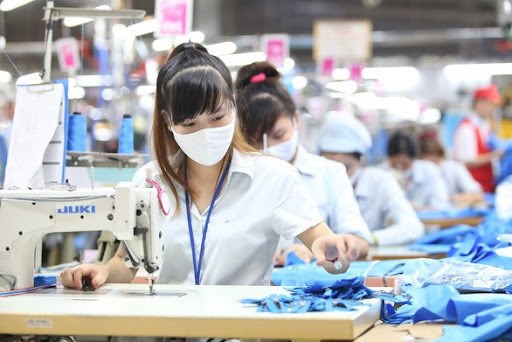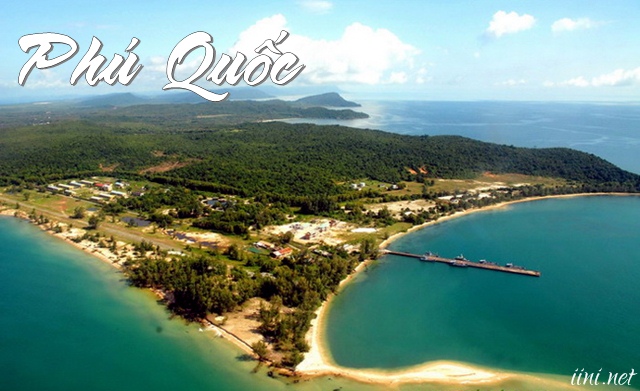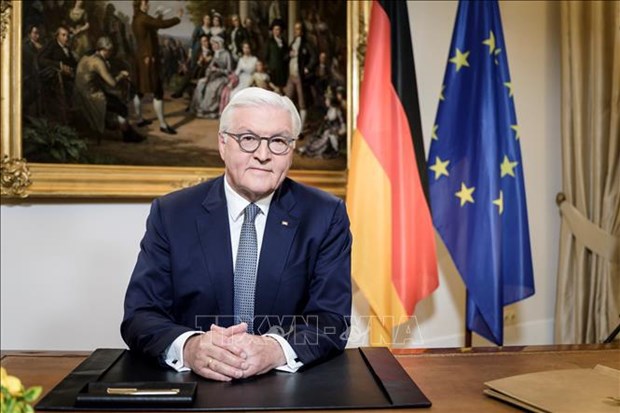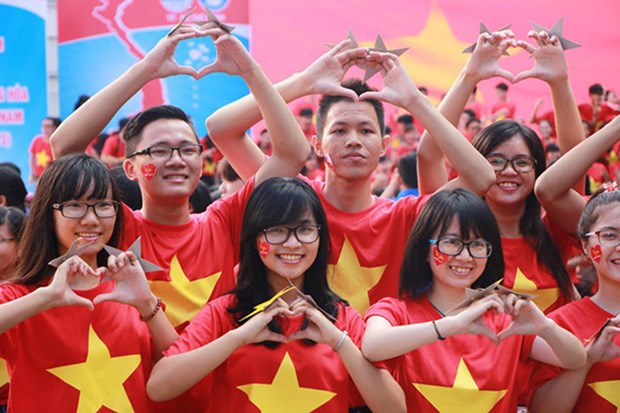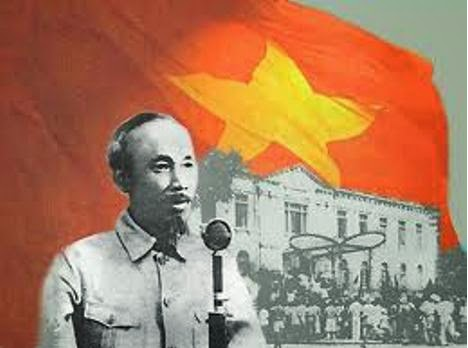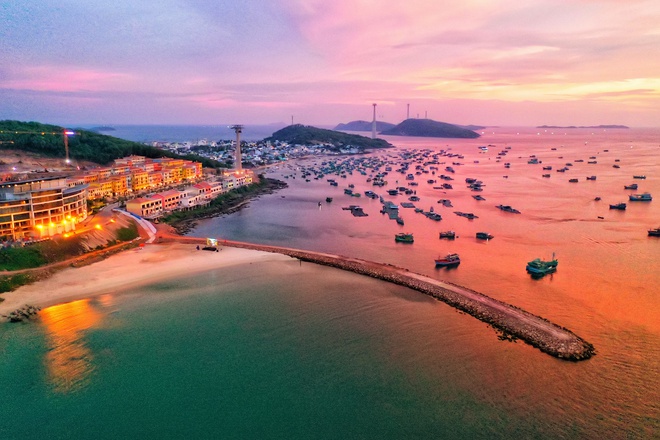With only around half a year left, Vietnam’s participation as a non-permanent member of the United Nations Security Council (UNSC) soon comes to end. Thus, it is time to take a look at the Vietnamese people who have contributed to the UN’s endeavor of securing peace in the war-torn Republic of South Sudan.
The country’s euphoria following its independence in 2011 was brief. After less than a year and a half of its newly-found independence, the oil-rich nation was plunged into a ravaging civil war, costing around 400,000 lives.
Another 1.6 million of South Sudan’s 11 million people are currently displaced, while more than two million have fled the country.
Today, South Sudan is one of the world’s poorest nations with two-thirds of its population depending on humanitarian aid.
Along with Vietnam’s position as the president of the UNSC in January 2020 and April 2021, Vietnamese armed forces have contributed to its first UN Peacekeeping Operations in South Sudan, with the first Vietnamese peacekeepers sent to the African country in 2018.
 |
| Photo: VIR |
Among the many Blue Helmets who have just returned from South Sudan – a landlocked nation more than 8,000 kilometers away from their home – was Lieutenant Colonel Nguyen Thi Minh Phuong. The reporters of VIR’s Vietnamese counterpart Bao Dau tu were honored to meet the first-ever participating female military observer, whose face had visibly been infused with African sunshine
“While Hanoi’s June heat can be fierce and hard to bear, it would count as just the most pleasant day in South Sudan. Temperatures at noon can easily reach 60°C, with hazy dust flying around one’s face all the time,” described Phuong.
But before doing so, she had to pass the rigorous selection process for the United Nations Mission in South Sudan (UNMISS). With unbreakable optimism and hard work, Phuong made it through all rounds of the assessment and received the news of her success on October 24, 2020.
 |
| Colonel Le Ngoc Son and Lieutenant Colonel Nguyen Thi Minh Phuong received the decision for their role as military observers within the UNMISS on October 24, 2019. (Photo: VIR) |
Born to be a peacekeeper
During her childhood, Phuong grew up in the family quarters of the Army Officer School I in Hanoi’s Son Tay district. Her grandfather, a tactics teacher, was the one who inspired her granddaughter to become a soldier.
“Every time he came home from teaching, I took his kepi hat and invite my brother and friends in the dormitory to play soldier and commander. Just like that, I grew attached to the soldier’s life, as if it was in my blood,” described the lieutenant colonel.
In 2014, Vietnam sent the first two officers to the UNMISS. When Phuong heard about this, she was very impressed with the pioneering Blue Helmets from Vietnam and started dreaming about following in their footsteps.
“Taking part in the UN peacekeeping operations was one of the new tasks of the Vietnam People’s Army. Therefore, I was researching and understanding the contents of peacekeeping missions and read many guidelines and policies of the Party, the State, and the Army to prepare myself for this task,” remembers Phuong.
Her desire to wear one of the iconic blue helmets and the peacekeeping uniform ignited even stronger when she attended a professional training course in Australia in 2016. Here, she met some officers who had been on duty in the UN missions and were participating in the training, which gave Phuong the best opportunity to learn everything about this force.
Some of these officers let her know that there was a great need for women with expertise and knowledge in foreign affairs and defence. However, at that time, Vietnam did not have any female officers who could join the force, nor did she fully understand the work, so she had to put aside her aspirations.
Between 2017 and 2018, Phuong completed her master’s degree and gave birth to her second daughter. In her heart though, she still cherished the dream that one day she would join the Blue Helmets.
Later in 2018, the Vietnam Department of Peacekeeping Operations announced the recruitment of female soldiers for the force. “I knew this was my time to become a Blue Helmet and become the first female Vietnamese military observer on a UN peacekeeping mission,” said Phuong.
 |
| Lieutenant Colonel Nguyen Thi Minh Phuong is proud of her role as the first female military observer from Vietnam in the ranks of the UN’s Blue Helmets. (Photo: VIR) |
“Most of my friends and colleagues were surprised and unsupportive of my dream. I think most of them were thinking that my life before was stable and peaceful, with me holding the position of the vice president of the foreign language department of a military school, a happy family, and three children.”
Phuong had been lucky, as she described, to have the wholehearted support of Duong Huy Hiep, her husband. Hiep is also a foreign language lecturer, knows foreign affairs and defense, and has an open mind about women’s participation in UN peacekeeping missions.
 |
| Lieutenant Colonel Phuong was seen off by her family at the airport before she went to South Sudan. Her parents, who served in Uncle Ho’s army, had experienced many hardships and were thus worried about their daughter |
'Not the typical lady'
In early 2019, the then-Major Nguyen Thi Minh Phuong – who was promoted to the rank of lieutenant colonel in May 2020 – officially joined the Blue Helmets. To become one of the UN’s peacekeepers, she had to fulfil strict criteria and a serious selection and training process.
Aside from good health, proficiency in foreign languages, and knowledge in military tactics, peacekeeping, and the United Nations, Blue Helmets must also be able to drive a manual car, use survival equipment, and operate independently in a multinational and sometimes dangerous environment.
“On the second or third day after arriving in South Sudan, we had to take more tests to assess our English proficiency, military knowledge, and driving. If any of these tests’ results were unsatisfactory, they would have sent us home immediately.”
To be fully prepared for her service at UNMISS, lieutenant colonel Phuong had undergone training courses at peacekeeping departments in Vietnam, Australia, and South Korea.
She recalled a simulated training situation, in which rebels kidnapped a group of scouts on patrol. Two South Korean male soldiers and Phuong were blindfolded and had their hands and feet tied, while being detained in an abandoned house. “The mission of us hostages was to find a way to negotiate with the rebels to be released,” Phuong explained.
Her colleagues playing the rebels acted very believable, even slapping her in the face and scratching her limbs. The simulation was a profound lesson for the female soldier, teaching her that staying calm is the best way to defuse a dangerous situation. “If you don’t panic and don’t show fear, you will have the opportunity to negotiate with the other party,” Phuong recalled.
In addition to simulations like the one in South Korea, the lieutenant colonel also believes that the 10 years of working at the army school have given her enough experience to face any harsh circumstances. She smiled when recalling these times, then spread her long fingers and said, “I’m not a lady.”.
 |
| Despite the harsh living conditions, Lieutenant Colonel Phuong has always been ready to make room for friendly interactions with the locals. (Photo: VIR) |
The steel rose
Many people likened the female Vietnamese Blue Helmet to a “steel rose”, soft, gentle but still solid and strong. As a military observer, Phuong had to be the eyes and ears of the mission command. This task included assessing the implementation of the ceasefire agreement between the different factions active in South Sudan and report to the headquarters.
Heavily affected by civil wars, sectarian conflicts, and issues evolving around ethnicity, life in South Sudan is rife with poverty and violence. Despite the harsh surroundings that forced Phuong sometimes to be tough and make quick decisions, she tried to remain gentle and soft whenever possible.
In addition to the civil war and conflicts amid the extremely poor and lacking conditions, extreme weather conditions, prolonged heat, and high temperatures were also a big challenge for the deployed forces in the area, especially for the military observers who often had to patrol the area outside the army base.
“When I first arrived in South Sudan, I felt a little uncomfortable due to the temperature difference. At that time, there was winter in Hanoi and South Sudan was extremely hot. But thanks to the careful psychological preparation and the ability to adapt quickly, I did not have any health problems,” she said.
She said the remnants of the devastating war are still everywhere, with abandoned houses, bullet holes in the walls, rusty military cars peeking out from the weeds on the roadside, with Malaria being another huge problem in South Sudan.
“South Sudan is a harsh land ravaged by long years of civil war. The longer I stayed there, the more I understood the value of peace and the meaning of my mission to preserve peace,” Phuong said.
 |
| Lieutenant Colonel Nguyen Thi Minh Phuong said that during the dry season, the midday temperature in South Sudan can easily reach 60°C. (Photo: VIR) |
 |
| Along with their role as peacekeepers, the Blue Helmets in South Sudan are also involved in reconstruction and the supply of basic necessities, such as fresh produce. (Photo: VIR) |
Staying Optimistic
During the last days before Lieutenant Colonel Phuong was about to return home, the security and political situation in South Sudan showed signs of positive change after the provisional unity government was approved and officially announced its establishment on February 22, 2020, with official elections to be held in 2023.
This event marked an important milestone in South Sudan’s politics thanks to the compromises, political commitment, and determination of South Sudan’s leaders seem to act in the interests of the country.
According to Phuong, during this time the conflicts and armed clashes throughout the territory of South Sudan were decreasing, and people who have fled their homes to neighbouring countries during the war have begun to return home.
However, in many areas of the country, peace was still a sensitive issue, and the situation remained overall complicated and unpredictable, with some ethnic conflicts, revenge attacks, cattle robbery, and other small-scale skirmishes still taking place.
The peace and the agreement between the two political rivals and former rebel leaders, Salva Kiir and Riek Machar is still fragile, with many remaining cautious about the effectiveness of the current unity government.
After serving her time in South Sudan, Lieutenant Colonel Nguyen Thi Minh Phuong realised that the most important thing is to stay optimistic in all circumstances, despite the many pessimistic ways one could look at South Sudan. “Optimism dispels hardship,” she said with a smile.
“Optimism is decisive in controlling and handling difficulties and challenges, as well as relieving stress and pressure. My optimism has helped me to spread this positive energy to friends, colleagues, and local people during the patrols.
 |
| “After finishing my term at UNMISS, I’m happy and proud,” said Phuong. (Photo: VIR) |
Q.Hoa t.h/ Thoidai

